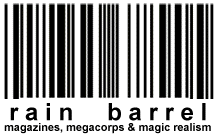
September 17, 2001

September 17, 2001
|
Northrop Frye in "Our Modern Century" makes the case, if I can recall correctly, that most of the events that made the 20th century "modern" (such as Einstein's "e=mc2", Ibsen's "A Doll's House") occurred within a brief period of its first ten or so years. And would you think of the end of the 19th century as a time of terrorism?
When the twentieth century, slowly turned into the 21st, our celebrations were largely muted under the threats of Y2K blackouts and threats of terrorism such as those that were uncovered in Seattle, Washington - threats that seems so unreal at the time. It is the now the year 2001. The previous "Day of Infamy" has been remembered as just another romance and special effects film. Perhaps September 11, 2001 will be known as the true beginning to our new millennium. "If you want peace, work for justice."
|
|